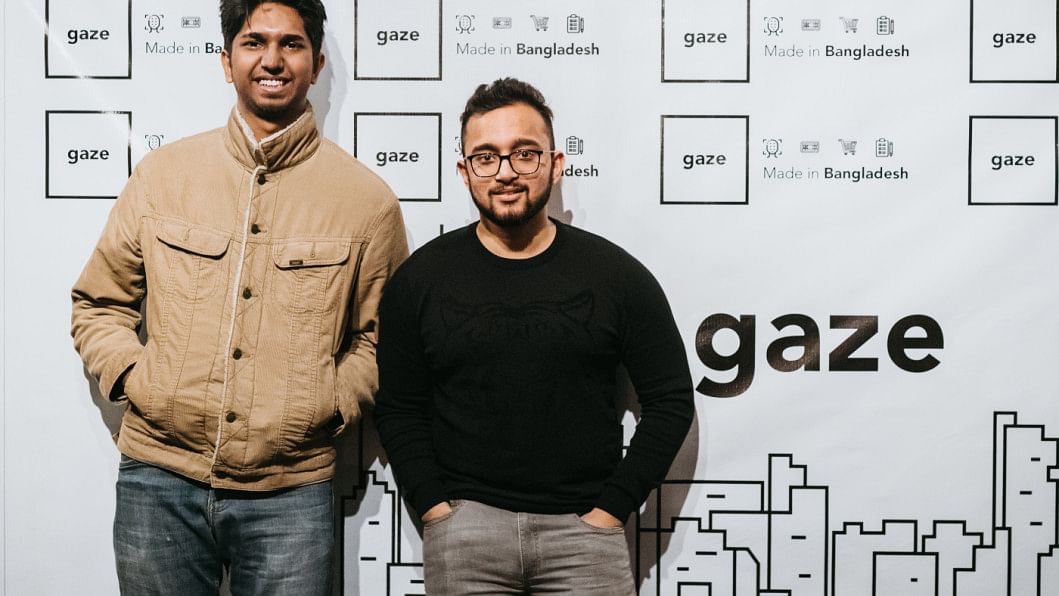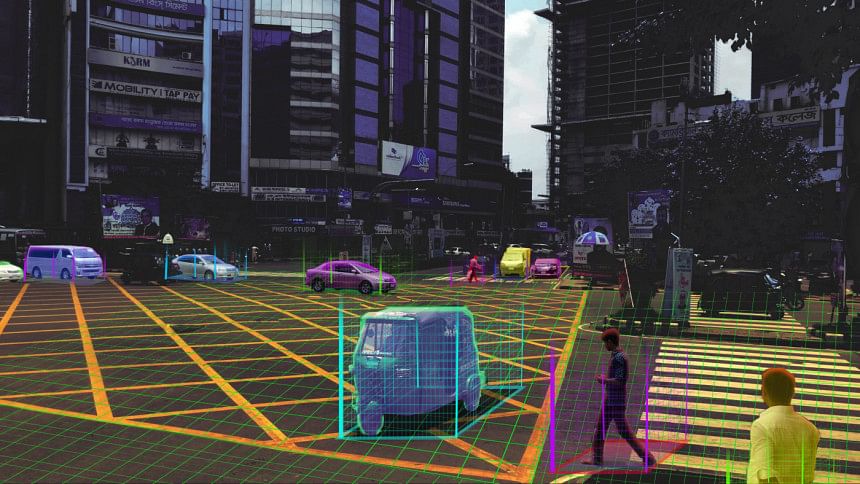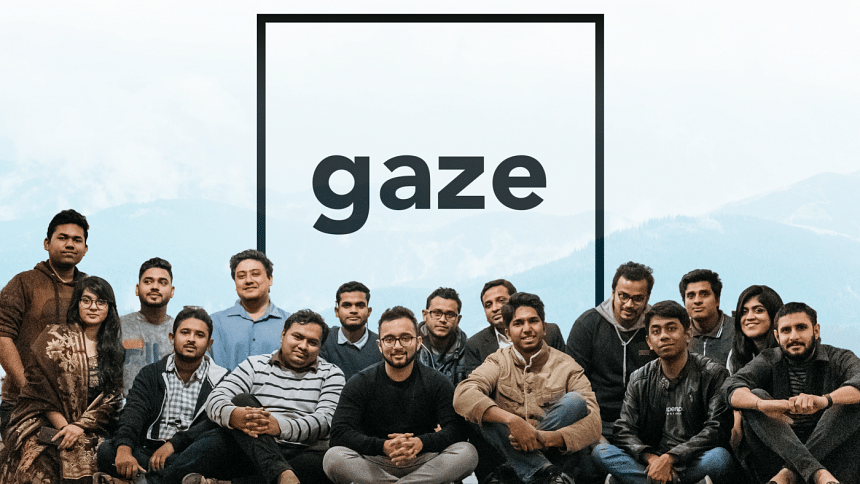The story of ‘Gaze’: The Bangladeshi startup that wants to embed AI in our everyday life

Gaze, a Singapore and Bangladesh-based Artificial Intelligence startup, has recently raised US$830,000 in seed funding led by US-based venture capital firm Anchorless Bangladesh, with follow-on capital from an existing angel investor Mr Mohammad Maaz. Being an ambitious tech startup that focuses on providing API solutions to the global market, Taus Noor (Co-founder & CEO) shares the experience of his team and about their journey so far and beyond with Toggle.
How did Gaze start its journey?
This is a story that has never been published or been on record before. The idea of Gaze came into our minds in 2017 when I was working at IBM and Motasim Rahman (Co-founder & COO) was the product chief at Vancouver-based Fireout. For the first year and a half, we tried to ideate around many different things in the AI space, and in May of 2018 we were invited for an interview by Y Combinator—the same company that incubated the growth of enterprises such as Dropbox, Airbnb, and Reddit. But the idea we pitched at the time didn't work out. Then we realized that if we had to make Gaze a true success, we needed to choose between our jobs and Gaze.
Leaving our jobs, we came back to Bangladesh, our home country, and set up an office where we could work more conveniently. We just wanted to take the time off and figure out what we wanted to do. Incidentally, one of our team members met Tanvir Mostafa, Director of Meghna Group of Industries, who approached us to develop a vehicle monitoring service for them—and that's how they became our first client. This was actually our first stepping stone to realizing that we wanted to continue developing visual recognition systems.
What type of service is Gaze concentrating on developing, and how does it generate revenue?
Since we had previously developed AI-powered intelligent video analytics software for several different use cases, including CCTV camera-based traffic monitoring, we realized API services for visual recognition could enable developers in this field to build out systems that utilize computer vision AI for infinite use cases and applications. In doing so, Gaze is looking to take on the global visual recognition market, with a focus on face recognition and product recognition, which is worth around US$50+ billion in 2020 for our current use cases, growing every year. To do so, we are currently forming different pricing schemes, including a pay-as-you-go model – priced at US$0.002 per call on average – and a freemium subscription. We saw a very interesting promise for API business in Bangladesh as we had also communicated with different tech-based startups like ShopUp, Sheba, Pathao and Chaldal who could potentially benefit from our service. We have also worked with or served several others in Bangladesh including various private and public sector entities. We are also developing partnerships in India and Myanmar for identity verification using our APIs. API SaaS model is also a very scalable business as it is not constrained by geographic boundaries.

Since the AI-based visual recognition services have the potential to impose a threat to the data security issue in Bangladesh, how will Gaze tackle it?
As we have worked with the Dhaka Metropolitan Police previously and developed a traffic monitoring system exclusively for them, a lot of people might actually think that our product or service deals with public or civil surveillance, which is entirely false. We only built and sold AI-powered video analytics software for real-time traffic analytics. Other than that, our face recognition systems were only ever used for attendance and security monitoring in closed premises; never for civil/public surveillance. In almost all government projects, we deployed our system in an offline environment that even we couldn't access remotely, so, data and network security were taken care of.
Gaze doesn't store or use any customer data without prior permission and, being an API, it does not interact with the end-user at all. We are an API company that enables other developers to build visual recognition software using our services. We strictly abide by the laws of both Singapore and Bangladesh since our parent company is based in Singapore and being someone who has worked in both the US and Canada, I am very aware of the data security laws myself. We are very careful to not offer any civil surveillance (public face recognition surveillance) technology.
What are your plans with the seed fund Gaze has raised? What are you going to disburse it on?
Gaze's number one priority has, is, and always will be talent. We believe in team spirit most of all. All the money that we raised and all the money that we earn will ultimately go behind talent since, at the end of the day, we are a pure tech company. We plan on delivering the best developer experience in the world and this is only possible if we can build the most talented and dedicated team. Our goal is to find the best people in the world, have them work with us and train others on our team to make better products.
Our CTO, Kevin Pierce, who is based out of Canada, has over 20 years of engineering experience at successful startups like Picatic and larger companies like Eventbrite. Dr. Nabeel Mohammed, our chief of research, is an academic who specializes in machine learning and holds a doctorate in computer vision. He's also an assistant professor at North South University and leads our entire research wing. Apart from them, we have 18 young and talented team members who are Bangladeshi and are continuously being trained by them to become better at what they do. So, the money we raised and all our earnings will consistently be spent on acquiring the best talent and improving the product and service we offer to our customers.
What are the goals for the future?
In terms of financials, we personally believe that this (API solutions) is a much more profitable business for us. So our vision is ultimately to embed AI into everyday life for all of us who use tech-based products or services. Gaze is building an ecosystem of engineers and entrepreneurs; we think developers and businesses can automate their processes and improve their software stack using visual recognition services offered through our API. We are trying to help them build their products and services using our technology as we believe in empowering open-source developers and innovate to build a better tomorrow. We are a platform company and we aspire to become the most successful company in the international visual recognition space someday.

How big is your team? Could you tell us about your culture at Gaze?
Gaze currently has a team of 23 people across Canada, Singapore, and Bangladesh. Due to our team being dispersed globally, we have to work remotely and even in Bangladesh, we are moving to be office-less. The way we work doesn't really require a physical office, so we have taken the more economical and geographically flexible route by working remotely. Every week, we have two social meetings online where we all catch up and talk about anything but work.
Now that you have raised a hefty amount of funds, what should founders, who are trying to raise investment, be mindful of?
Well, the important thing here is that raising funds isn't an indicator of success, understanding and responding timely to the market is. Success is your business, product, and customer satisfaction. At the end of the day, it's your customer who decides the success of your company, not anyone else.
Also, more importantly, both Motasim and I are new to running a business. We believe that with ignorance comes the curiosity to learn and so we have always kept an open mind and embraced feedback from our advisors, mentors, investors and people who have been in the business. For example, Hussain Elius (CEO of Pathao) and Jayesh Parmar (CEO of Vancouver-based Picatic, acquired by Eventbrite) are official advisors of Gaze. We also have personal mentors like Waseem Alim (CEO at Chaldal) and Afeef Zaman (CEO at Shopup), who we communicate with regularly to make better decisions. However far we've come with Gaze was only possible because we kept an open mind. We embraced and valued feedback from all our stakeholders, no matter how minute it was.





Comments